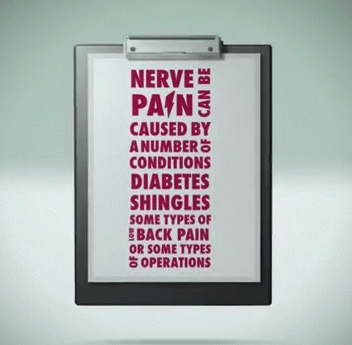New Scientist published a research article in February about whether invertebrates feel pain, and I for one would like to congratulate them on publishing a non-sensationalist article about pain mechanisms. Why is it that an article about neural pathways, pain mechanisms and pain perception in invertebrates – such as crabs and squid – often uses better ‘pain language’ than the pain education resources provided by medical treatment companies?

Robert Elwood, Professor of Biological Sciences at Queens University in Belfast, was contacted by celebrity chef Rick Stein, in order to find out if there is a more humane way to kill crustaceans in the kitchen they had to answer the questions: Do invertebrates feel pain
Elwood’s answer:
“Denying that crabs feel pain because they don’t have the same biology is like denying they can see because they don’t have a visual cortex.”
Special receptors called nociceptors – which sense excessive temperatures, noxious chemicals or mechanical injuries such as crushing or tearing – are found throughout the animal world, from humans to fruit flies... but when an animal responds to something we would consider painful, it does not necessarily mean the animal is in pain. The response might be a simple reflex, where signals do not travel all the way to the brain, bypassing the parts of the nervous system connected with the conscious perception of pain. When we scald our hand, for example, we immediately – and involuntarily – pull it away. Pain is the conscious experience that follows, once the signals have reached the brain.
A lovely, concise summary of nociceptive pathways and pain involvement, sans the melodrama of traditional media. But back to crustaceans:
They were looking to discover ‘the crustacean equivalent of nursing a wound’. Starting with prawns, Professor Elwood thought he knew what to expect – a reflex reaction. But surprisingly:
…when he brushed acetic acid on their antennae, they began grooming the treated antennae with complex, prolonged movements of both front legs. What’s more, the grooming diminished when local anaesthetic was applied beforehand.
“These are not just reflexes,” Elwood says. “This is prolonged and complicated behaviour, which clearly involves the central nervous system.”
Elwood determines that insects are unlikely to feel pain, as “From an evolutionary perspective, the only reason for pain that makes sense to me is that it enables long-term protection” and as insects have extremely short life spans it is unlikely that they have the need to feel pain.
He concludes with, “Like all subjective experience, pain remains private to each individual.”
Compare and contrast
I originally came across this video for patients suffering ‘nerve pain’ marketed as a pain questionnaire on morethanmedication.com.au – Pfizer’s patient education site.
The video claims, with nary a reference in sight, the following:
More than 50% of chronic pain suffers describe symptoms of nerve pain.
Nerve pain feels different to other types of pain.
Nerve pain is caused by damage or injury to the nerves, the brain or the spinal cord.
Nerve pain can be caused by a number of conditions. Diabetes, shingles, some types of LBP, or some types of operations.

Scary stuff. Not surprisingly, this is actually a video to promote Lyrica. The designer posted it on YouTube as “Lyrica Nerve Pain – Pfizer”
This type of language is fuelling the fears and anxieties surrounding pain genesis in the first place. A fine summary from Paula – NOI HQ’s graphic designer – after watching this video she said “I feel like I have these pains now”. I suspect that this is no coincidence.
Perhaps this lack of sensationalism in New Scientist’s article exists because it’s easier to report objectively when the subject is not human, and the article content is less likely to evoke such a strong reaction from its readers because we cannot relate with a crustacean? And in contrast, as is likely the case for the Pfizer video, the pain language was manipulated to generate the emotional response that all marketing campaigns require.
-Kat Waterman
www.noigroup.com
Lost in Translation is a category where we either congratulate or ‘name and shame’ media for there use of pain language. Feel free to contribute any sources that you find fitting. See Lost in Translation – Acupuncture

Thanks Kat – that “nerve pain” ad was driving me crazy.
The contrast here really shows what we humans have done to ourselves.
However I won’t be looking at my easter prawns the same way now
David
Big business knows how to manipulate the plebs? Surely not!!
I’ve never seen anyone respond favourably to Lyrica. Most of the anti-epileptic spin offs have been dismal failures for chronic pain.
Yo L,
How much of your interview did they edit out to get that one minute of thoughtful response . From what I know about Lyrica and other neural membrane stabilizers- don’t they work primarily at the peripheral nociceptive level?
Advertisers like good propagandists often work by the rules of: make the complex inaccurately simplistic and the simple hopelessly complex therefore requiring the dependence on the knowledge of “those who know”.
Yo David,
i can see the new advertising campaign coming. Don’t become depressed about cooking your favorite prawn. Knock it out before throwing throwing him/her on the barbie. We got at drug for that!! It won’t feel a thing and neither will you. There is money there somewhere. Johnb
Kat, thank you – a very interesting piece for the lay person. It really made me think about marketing messages, both good and bad and the effects they have on people. Not to mention the poor prawns.
Jo
Thanks for that Kat and great to see you in the ranks. Let’s hope more affiliated people share “The voice” …….from the article I struggle with the fact that humans measure the probabilities of something “Being ” through their own limited consciousness and not their unlimited phantasies……….why, just because an insect has a short life span doesn’t it have the right to experience pain?……..I’m going off on one here but why do we judge the existence of life on another planet purely on the facts of whether water or oxygen exists. Maybe they thrive on acid and carbon monoxide due to a physiology that we don’t know of YET……..it’s this lack of lateral thinking that limits us in truly accepting the patients perspective of their unique experience………I haven’t forgotten to take my meds so don’t worry ……
Well done! This is an excellent piece of work and I hope Pfizer read it!